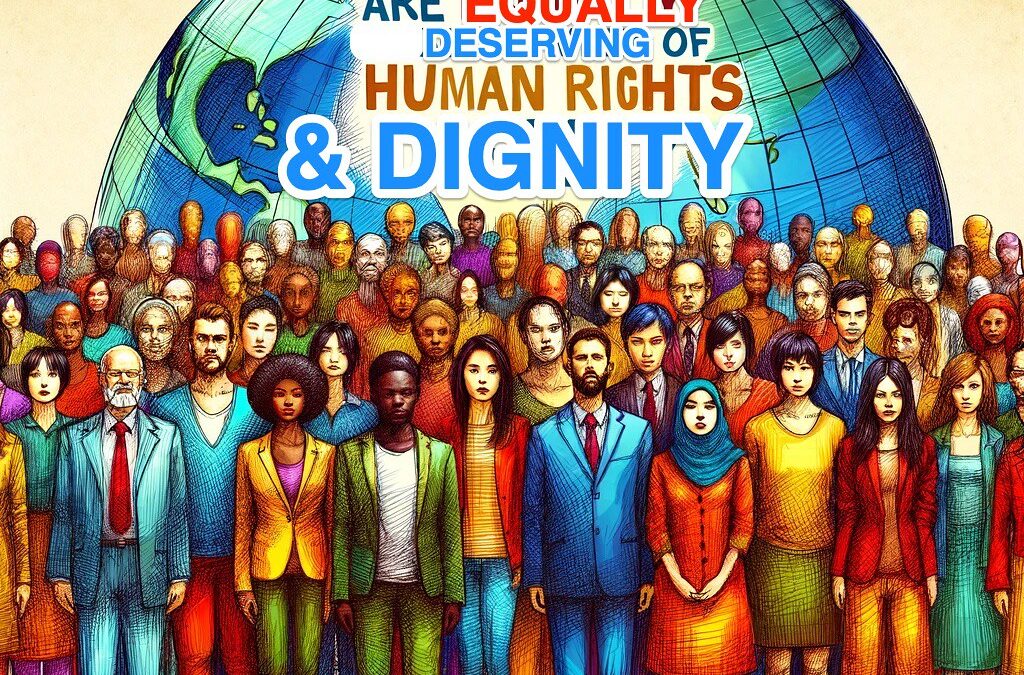Seek the peace and prosperity of the city… because if it prospers, you too will prosper (Jeremiah 29:7). Or in the words of an ancient proverb: The security of the little person is based on the security of the great person; the security of the great person is based on the security of the little person. The little and the great, the upper, middle, and working classes are dependent on one another, so that all can have their joy.
Northern Ireland, also referred to as the North of Ireland, epitomizes a divided society where political and social fractures run deep. Governance in such a context demands a framework that transcends divisions and fosters unity. The concept of the common good provides a potent ethical foundation for achieving this.
The Importance of the Common Good
The common good is predicated on the understanding that our well-being is deeply intertwined with the entirety of society. It promotes a vision in which all humans can flourish, irrespective of race, gender, religion, or class. The ancient wisdom encapsulated in Jeremiah 29:7 and the proverb about the interdependence of the little and the great underscores this interconnectedness – our prosperity is mutually dependent.
Studies have shown that the more unequal a society is, the less peaceful it is likely to be. For instance, countries with high levels of income inequality often experience higher rates of crime and social unrest. Conversely, societies that promote equality and inclusivity tend to be more stable and harmonious. Additionally, the inclusion of women and marginalized groups in peace processes significantly increases the likelihood of achieving lasting peace, by ensuring diverse perspectives and experiences are acknowledge and considered.
Challenges in Divided Societies
In divided societies like Northern Ireland, the common good is often a contested concept, which can be used for political gain. This can lead to oppressive systems of governance as one group seeks to assert their authority and their single vision of society over the ‘other.’ Although one section of society may benefit from such a vision of society, it is short-sighted. The wins that one group might make may seem advantageous in the short-term, however, they will be lost if they do not serve the entire society. The recurring political deadlocks in Northern Ireland politics and persisting (often violent) sectarianism is testament to this.
Principles for Governance Based on the Common Good
To build a society where all can thrive, it is essential to address two fundamental questions:
- What social, economic, and political conditions are necessary for human flourishing?
- What type of governance is required to implement this vision?
Answering these questions necessitates adherence to four interdependent principles that form an ethical framework for better governance:
Human Dignity
A commitment to human dignity acknowledges the equality of all individuals. It recognizes each person as a community member deserving of respect and just treatment, regardless of their identity (be it their religious, gender, racial, class, or national identity, or their sexual orientation). This means of social policies must be inclusive and promote equality across all identity groups. For example, it means insisting and ensuring that strategies such as the Racial Equality Strategy and Anti-Poverty Strategy in Northern Ireland are implemented.
Human Interconnectedness
Our dependence on others is crucial, as shown by the COVID-19 pandemic’s need for global cooperation and solidarity. Collaborative efforts in research, vaccine distribution, and economic recovery have been essential. The principle of the common good acknowledges our human interconnectedness and understands that there is very little we can do alone.
Solidarity
Solidarity involves empathy, compassion, and working for the collective good (not just for those with whom we share similar ideologies and theologies). It calls for transforming discriminatory social structures and attitudes, including patriarchy, colonialism, and theological doctrines promoting sexism, racism, and sectarianism. Promoting solidarity requires active efforts to address systemic inequalities and injustices. This can include initiatives such as educational programs that foster understanding and respect for diverse cultures, as well as policies that support equal opportunities for all individuals, regardless of their background.
Civic Participation
Active civic participation is vital for governance that supports equality and justice. It involves choosing our political representatives thoughtfully and considering the impact of their actions on social policies. We should ask: How do our policies promote equality and justice? How are they impacting those affected by climate crises? What effects do they have on access to healthcare, education, employment, and housing? Who is included or excluded in our decisions?
A Path Forward
In an increasingly polarized world, adopting an ethic of the common good can help move beyond politics that impose singular societal visions. This is not about all agreeing with each other but about creating shared principles that allow for constructive disagreement and promoting collective well-being.
Religious leaders and people of faith have a crucial role to play in this. For example, they can advocate for policies promoting human dignity, work to dismantle discriminatory structures, facilitate dialogue, and promote unity. Although many already do this work, there is still an urgency for the church, as a collective, to acknowledge its role in social division and undermining ‘the peace and prosperity of the city.’ Northern Ireland’s path to a peaceful, flourishing society lies in embracing this ethical framework.
Dr Cathy Bollaert has worked towards the goal of reconciliation in numerous post-conflict societies including South Africa, Sri Lanka, and Northern Ireland/the North of Ireland.
Please note that the statements and views expressed in this article of those of the author and do not necessarily represent those of Contemporary Christianity.


Recent Comments